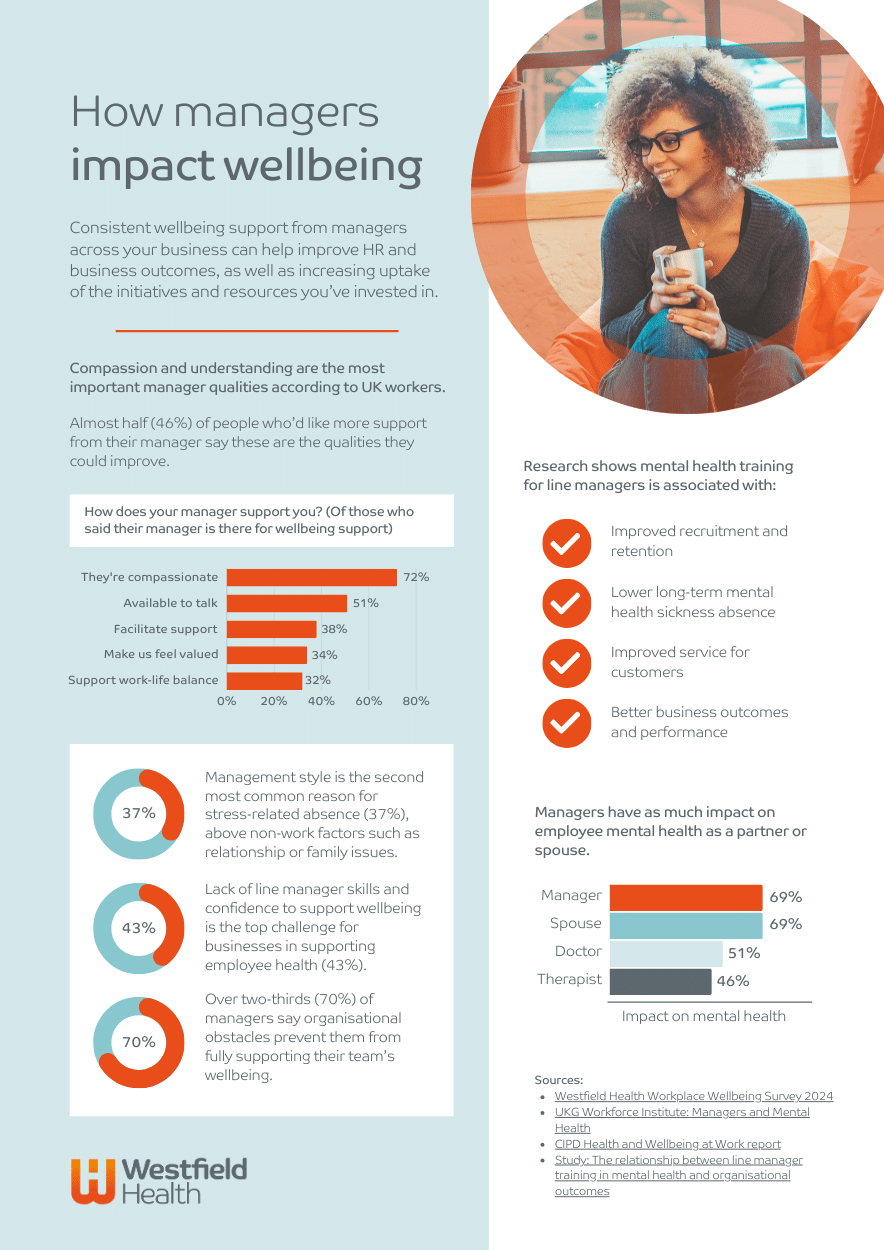Employers are increasingly recognising their role in supporting employee wellbeing, with many investing in initiatives such as health insurance, employee assistance programmes (EAPs) and mental health training.
But these schemes are rarely successful in isolation. Employees must be empowered and encouraged to look after their health by the culture of their organisation and the people they work with.
Managers are a key link between a workplace’s leaders and its employees. They have a huge impact on the employee experience, helping to shape workplace habits and its culture. These key findings explore the role of the modern manager:
1. Workers feel their manager affects their wellbeing more than their doctor
According to research by The Workforce Institute at UKG, employees feel their manager has a higher impact on their mental health (69%) than doctors (51%) and therapists (41%), and the same impact as a partner/spouse (69%).
2. Employees value supportive managers
The same study found that 1 in 3 workers say their manager fails to recognise the impact they have on their team’s mental wellbeing. And they’re actively looking for support, with 7 in 10 saying they’d like their company and manager to do more to support mental health.
3. Compassion and understanding are the two most important skills
The CIPD found that management style is named as the second most common cause of stress-related absence at work.
The Westfield Health Workplace Wellbeing Survey found that the most important qualities for a manager, as rated by employees, are compassion, understanding and availability to talk.
4. Building skills and confidence should be a priority
People professionals, including HR teams, say a lack of line manager skills and confidence is their main challenge for employee health and wellbeing over the next year, with 43% saying this is a focus area for them.
From a manager perspective, 70% say that many factors, including heavy workloads, meant they could not support the health, safety and wellbeing of employees and have important conversations.
5. Good managers have huge business benefits
A good management culture results in improved employee mental health, fewer absences and better employee retention.
Mental health days off now cost the UK economy around £19.5bn per year, so mental health support is a real focus area for many businesses.
